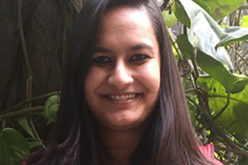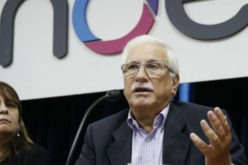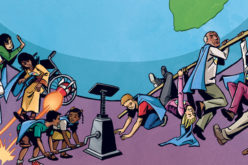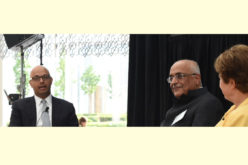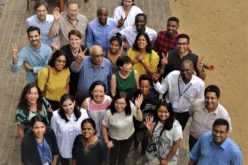From Senegal: Data Gaps in Governance
Originally posted in the Global Daily on 18 January, 2017 by Claire Baumann, Senior Editor at the Global Daily.
Southern Voice’s network member, Maam Suwadu Sakho-Jimbira from Initiative Prospective Agricole et Rurale (IPAR), offers her perspective from Senegal on data gaps.

For the final installment on our series discussing the role of data in sustainable development, we continue to talk to leading thinkers from around the world.
With the United Nation’s World Data Forum closing on January 18, data scientists and policymakers can go forward with renewed networks and resources. Amidst shifting political landscapes around the globe, the important role of data and the people behind it remains steadfast: to push forward with enhanced systems to create a more prosperous future for everyone. Maam Suwadu Sakho-Jimbira offers her perspective from Senegal on our three questions:
Global Daily: Can you recall a moment in your life or an experience in your work that underscored the need for better data in sustainable development?
Our think tank conducted a study on the tracking of agricultural subsidies, due to the significant budget that is allocated to these subsidies. Naturally, everyone expected that the subsidies are put in place to help poor people gain easy access to agricultural imports. However, based on the survey we conducted, data has shown that agricultural subsidies are not proper, and households benefit more from the subsidies. In addition, a problem of transparency exists, and huge losses within the subsidies were found. This study shows a need for better data in the agricultural sector, and more broadly in sustainable development.
From these findings, we were able to facilitate a policy dialogue between the main stakeholders, in order to improve the whole system of agricultural subsidies for the benefits of peoples’ lives.
Global Daily: In what area of data for sustainable development do you see the biggest gap?
The area of sustainable development where I see the biggest gap is on governance. Indeed, the importance of governance verses sustainable development is well recognized by the international community. However, compared to other Sustainable Development Goals that are more related to economic or social issues, the data on governance is most lacking. It is very important to close this gap if you want the SDGs to be inclusive and ensure that no one will be left behind. For example, if you take the case of natural resources or governance, without a good data understanding of who has access and who doesn’t have access, the poorest and the most vulnerable people will still be left behind. On the issue of corruption, for example, it will be very difficult to fight against the payment of bribes if the data to prove the scope of the problem is not available. Although it is important to close this gap of data on governance, we should recognize that it will be very challenging to do so, particularly if you want to rely only on data produced by the National Statistical Offices. In fact, given that governance related indicators are most of the time based on qualitative tools and perception data, the National Statistical Office doesn’t have the required capacity to adequately collect this kind of data. At the same time, it is recognized that there are a number of NGOs, think tanks and academic institutions that are working on governance and frequently generate data on this issue. Moreover, the use of administrative data could also help close some data gaps on governance, but their quality needs to be improved as well as their accessibility. In summary, there is a huge need for collaboration in order to close this data gap on governance and ensure that the data is consistent and technically sound.
Global Daily: What impact are you hoping that the World Data Forum will have?
I think that the impact I am expecting from the World Data Forum is to reflect on the best practices to close the most important data gaps on governance and environment for a better implementation in monitoring offices. This meeting is very significant for me because it will give me the opportunity to learn from my peers and also to strengthen my expertise in issues related to data and sustainable development. Moreover, it is also important to my country, given that we are in the beginning of developing our roadmap for sustainable development. Our presence here in Cape Town for the World Data Forum will give us the opportunity to learn from other countries.
Southern Voice on Post-MDG International Development Goals (Southern Voice) is a network of 49 thinks tanks from Africa, Asia and Latin America, which serves as an open platform to make contributions to the Sustainable Development Goals.
Dr. Maam Suwadu SAKHO-JIMBIRA hold a PhD in Economics, University of Montpellier I and a Master’s in Economics, University Gaston Berger of Saint-Louis, specialized in agricultural and development economics. She formerly worked for national and international organizations, namely the Senegalese Agricultural Research Institute in Dakar, and the Center for International Forestry Research in Yaoundé, Ouagadougou and Indonesia. She is currently a researcher at IPAR “Initiative Prospective Agricole et Rurale”, a think tank based in Dakar where she coordinated the Post-2015 Data Test. She is teaching Development Economics at the National School of Statistics and Economic Analysis (ENSAE).
1,576 total views, 1 views today


